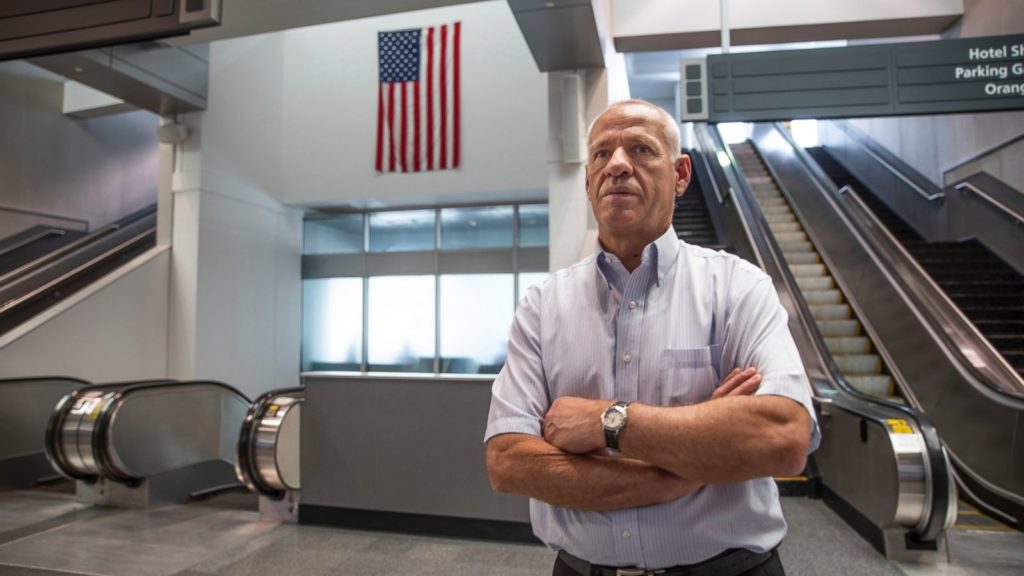A U.S. citizen who immigrated from Albania has accused U.S. Customs and Border Protection of seizing and keeping his life savings of $58,000 even though he has not been charged with a crime since being strip-searched at an airport last year on a trip back to his native country.
A lawsuit filed against the agency said it missed an April deadline either to return the money or start criminal proceedings. It says 64-year-old Rustem Kazazi was carrying the cash because he wanted to avoid transaction fees and thought it would be safer than trying to withdraw large sums of money in Albania, where he planned to repair a family home and was considering buying a vacation home.
Attorneys for Kazazi, who lives in suburban Cleveland, said the airport seizure highlights a practice civil rights groups have criticized for years — the government’s use of civil forfeitures that allows law enforcement to take possessions without indictments or evidence a crime has been committed.
Opponents argue it opens the door for constitutional rights violations.
The Virginia-based Institute for Justice, which is handling the lawsuit filed last week, has previously sued Customs and Border Protection in two forfeiture cases in Texas, including one against a Houston-area nurse traveling to Nigeria to build a medical clinic.
In both instances after the lawsuits were filed, the agency returned the money and property without bringing charges.
“We should be convicting people of crimes before we strip them of their property — at a minimum they should first be charged,” said Wesley Hottot, an attorney with the organization. “This is an un-American law enforcement tool.”
A spokesman for the Customs and Border Protection said the agency doesn’t comment on pending lawsuits.
U.S. Attorney General Jeff Sessions has defended his agency’s civil asset forfeiture program, which the Justice Department sees as a way to strip suspects of the proceeds of their activities, to deter crime and to compensate crime victims.
But the department’s inspector general found weaknesses in the program. It said the department doesn’t collect enough data to determine whether the seizures benefit criminal investigations or the extent to which they infringe on civil liberties, according to a report released last year.
Former Attorney General Eric Holder in 2015 restricted the ability of the federal government to take possession of assets seized by local authorities amid concerns that property could be seized without judicial oversight and without the owner ever being charged with a crime.
Kazazi was a police officer before moving with his family to the Cleveland area in 2005. His limited use of English restricted him to jobs such as a parking lot attendant or busboy, often working two or three at a time, the lawsuit said. His wife taught English classes for immigrants. Their son also worked and contributed to the savings, it said.
The airport seizure took place last October when Kazazi was traveling to Albania.
A Transportation Security Administration agent spotted the stacks of $100 bills Kazazi had stuffed into envelopes before boarding his first flight to New Jersey. Kazazi was pulled aside into a private room at the Cleveland airport and strip-searched, the lawsuit said.
He said Customs and Border Protection agents wouldn’t provide him with an interpreter or allow him to call his family even though he had trouble understanding their questions.
They then seized the $58,000 without explanation but did not arrest him before allowing him to continue on the trip, he said in the lawsuit.
A month later, he received a notice that said the money was involved in a “smuggling/drug trafficking/money laundering operation,” the lawsuit said.
Kazazi’s attorney called those allegations baseless, emphasizing that no charges have been filed in more than seven months.
The family has bank records and other documents that prove they saved their money from jobs they held lawfully in the U.S., the lawsuit said.
Passengers carrying more than $10,000 into or outside of the U.S. are required to fill out a report or risk a fine or forfeiture. Kazazi knew about the rule, his attorney said, and had planned to submit the forms before his next flight left New Jersey for Germany.
The Institute for Justice, in a separate lawsuit, is seeking to obtain more information about how often and how much the government uses civil forfeitures.
“No one knows in any detail how often this happens except the government,” Hottot said. “And the government doesn’t make this public.”
(AP)












One Response
much of the property forfeiture that happens in criminal proceedings is at best immoral and at worst unconstitutional